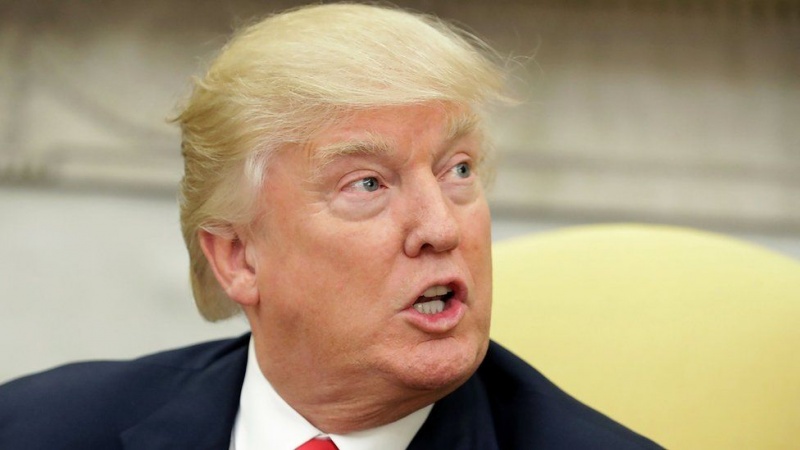
Traditional US allies are among a growing chorus condemning President Trump’s decision to recognise Jerusalem as Israel’s capital.
Saudi Arabia called it “unjustified and irresponsible”, while France and the UK said they did not support the decision.
But Israeli PM Benjamin Netanyahu hailed it as “a historic day”.
President Trump’s move reversed decades of US policy. The fate of Jerusalem is one of the thorniest issues between Israel and the Palestinians.
Palestinian President Mahmoud Abbas denounced Donald Trump’s move as “deplorable”.
Palestinians in the West Bank and Gaza Strip are expected to hold a day of strikes and protests on Thursday.
The UN Security Council is to discuss the issue on Friday after eight of the 15 member nations called for an emergency session. The Arab League is to meet on Saturday.
What did Trump say?
The US president said on Wednesday he had “judged this course of action to be in the best interests of the United States of America, and the pursuit of peace between Israel and the Palestinians”.
He said he was directing the US state department to begin preparations to move the US embassy from Tel Aviv to Jerusalem.
Despite warnings of regional unrest over any such move, the decision fulfils a campaign promise and appeals to Mr Trump’s right-wing base.
“Today, I am delivering,” the US leader said.
Recognising Jerusalem as Israel’s capital was “nothing more or less than a recognition of reality”, he added. “It is also the right thing to do.”
He said the US still supported a two-state solution to the longstanding Israeli-Palestinian conflict, if approved by both sides, which would essentially see the creation of an independent Palestinian state living alongside Israel.
What do Israel and the Palestinians say?
Following the announcement, Benjamin Netanyahu said Israel was profoundly grateful, tweeting: “Jerusalem has been the focus of our hopes, our dreams, our prayers for three millennia.”
On Thursday, he went further, saying President Trump “bound himself forever with the history of the capital”, and predicting that many other countries would follow Washington’s example.
The Republican Jewish Coalition thanked the president in a New York Times ad.
The mood was very different on the Palestinian side, with a day of strikes and protests planned.
The leader of Hamas, the Islamist movement that runs the Gaza Strip, called for a new intifada, or uprising, saying it was the only way to “confront” Israel and the US.
Palestinian President Mahmoud Abbas called Mr Trump’s announcement “deplorable” and said Jerusalem was the “eternal capital of the state of Palestine”.
Fatah, Mr Abbas’s party, said it would push for a UN resolution requesting that Washington “rescind its decision” and disqualifying the US as a co-sponsor of the peace process.
What does the rest of the world say?
The Arab and the wider Muslim world – including a number of US allies – condemned Mr Trump’s announcement.
Demonstrations have already taken place outside the US consulate in Istanbul, Turkey.
“The US move represents a significant decline in efforts to push a peace process and is a violation of the historically neutral American position on Jerusalem,” the Saudi royal court said.
Malaysian PM Najib Razak called on Muslims everywhere to “make it clear that we strongly oppose” the US move.
UN Secretary General Antonio Guterres said it was “a moment of great anxiety”. He said “there is no alternative to the two-state solution”.
Why is the announcement significant?
Mr Trump’s announcement puts the US at odds with the rest of the international community’s view on Jerusalem’s status.
The Palestinians claim East Jerusalem as the capital of a future state, and according to the 1993 Israel-Palestinian peace accords, its final status is meant to be discussed in the latter stages of peace talks.
Israeli sovereignty over Jerusalem has never been recognised internationally, and all countries maintain their embassies in Tel Aviv.
Jerusalem contains sites sacred to the three major monotheistic faiths – Judaism, Islam and Christianity.
East Jerusalem, which includes the Old City, was annexed by Israel after the Six Day War of 1967, but before now it has not been internationally recognised as part of Israel.
Source : BBC

































